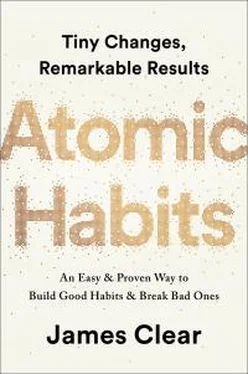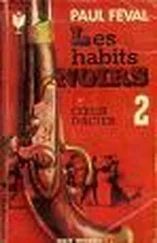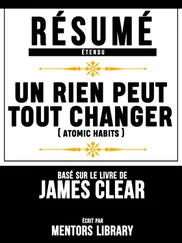CHAPTER 3
Edward Thorndike conducted an experiment :Peter Gray, Psychology , 6th ed. (New York: Worth, 2011), 108–109.
“by some simple act, such as pulling at a loop of cord” :Edward L. Thorndike, “Animal Intelligence: An Experimental Study of the Associative Processes in Animals,” Psychological Review: Monograph Supplements 2, no. 4 (1898), doi:10.1037/h0092987.
“behaviors followed by satisfying consequences” :This is an abbreviated version of the original quote from Thorndike, which reads: “responses that produce a satisfying effect in a particular situation become more likely to occur again in that situation, and responses that produce a discomforting effect become less likely to occur again in that situation.” For more, see Peter Gray, Psychology , 6th ed. (New York: Worth, 2011), 108–109.
Neurological activity in the brain is high :Charles Duhigg, The Power of Habit: Why We Do What We Do in Life and Business (New York: Random House, 2014), 15; Ann M. Graybiel, “Network-Level Neuroplasticity in Cortico-Basal Ganglia Pathways,” Parkinsonism and Related Disorders 10, no. 5 (2004), doi:10.1016/j.parkreldis.2004.03.007.
“Habits are, simply, reliable solutions” :Jason Hreha, “Why Our Conscious Minds Are Suckers for Novelty,” Revue , https://www.getrevue.co/profile/jason/issues/why-our-conscious-minds-are-suckers-for-novelty-54131, accessed June 8, 2018.
As habits are created :John R. Anderson, “Acquisition of Cognitive Skill,” Psychological Review 89, no. 4 (1982), doi:10.1037/0033–295X.89.4.369.
the brain remembers the past :Shahram Heshmat, “Why Do We Remember Certain Things, But Forget Others,” Psychology Today , October 8, 2015, https://www.psychologytoday.com/us/blog/science-choice/201510/why-do-we-remember-certain-things-forget-others.
the conscious mind is the bottleneck :William H. Gladstones, Michael A. Regan, and Robert B. Lee, “Division of Attention: The Single-Channel Hypothesis Revisited,” Quarterly Journal of Experimental Psychology Section A 41, no. 1 (1989), doi:10.1080/14640748908402350.
the conscious mind likes to pawn off tasks :Daniel Kahneman, Thinking, Fast and Slow (New York: Farrar, Straus and Giroux, 2015).
Habits reduce cognitive load :John R. Anderson, “Acquisition of Cognitive Skill,” Psychological Review 89, no. 4 (1982), doi:10.1037/0033–295X.89.4.369.
Feelings of pleasure and disappointment :Antonio R. Damasio, The Strange Order of Things: Life, Feeling, and the Making of Cultures (New York: Pantheon Books, 2018); Lisa Feldman Barrett, How Emotions Are Made (London: Pan Books, 2018).
CHAPTER 4
The psychologist Gary Klein :I originally heard about this story from Daniel Kahneman, but it was confirmed by Gary Klein in an email on March 30, 2017. Klein also covers the story in his own book, which uses slightly different quotes: Gary A. Klein, Sources of Power: How People Make Decisions (Cambridge, MA: MIT Press, 1998), 43–44.
military analysts can identify which blip on a radar screen :Gary A. Klein, Sources of Power: How People Make Decisions (Cambridge, MA: MIT Press, 1998), 38–40.
Museum curators have been known to discern :The story of the Getty kouros, covered in Malcolm Gladwell’s book Blink , is a famous example. The sculpture, initially believed to be from ancient Greece, was purchased for $10 million. The controversy surrounding the sculpture happened later when one expert identified it as a forgery upon first glance.
Experienced radiologists can look at a brain scan :Siddhartha Mukherjee, “The Algorithm Will See You Now,” New Yorker , April 3, 2017, https://www.newyorker.com/magazine/2017/04/03/ai-versus-md.
The human brain is a prediction machine :The German physician Hermann von Helmholtz developed the idea of the brain being a “prediction machine.”
the clerk swiped the customer’s actual credit card :Helix van Boron, “What’s the Dumbest Thing You’ve Done While Your Brain Is on Autopilot,” Reddit, August 21, 2017, https://www.reddit.com/r/AskReddit/comments/6v1t91/whats_the_dumbest_thing_youve_done_while_your/dlxa5y9.
she kept asking coworkers if they had washed their hands :SwordOfTheLlama, “What Strange Habits Have You Picked Up from Your Line of Work,” Reddit, January 4, 2016, https://www.reddit.com/r/AskReddit/comments/3zckq6/what_strange_habits_have_you_picked_up_from_your/cyl3nta.
story of a man who had spent years working as a lifeguard :SwearImaChick, “What Strange Habits Have You Picked Up from Your Line of Work,” Reddit, January 4, 2016, https://www.reddit.com/r/AskReddit/comments/3zckq6/what_strange_habits_have_you_picked_up_from_your/cyl681q.
“Until you make the unconscious conscious” :Although this quote by Jung is popular, I had trouble tracking down the original source. It’s probably a paraphrase of this passage: “The psychological rule says that when an inner situation is not made conscious, it happens outside, as fate. That is to say, when the individual remains undivided and does not become conscious of his inner opposite, the world must perforce act out the conflict and be torn into opposing halves.” For more, see C. G. Jung, Aion: Researches into the Phenomenology of the Self (Princeton, NJ: Princeton University Press, 1959), 71.
Pointing-and-Calling reduces errors :Alice Gordenker, “JR Gestures,” Japan Times , October 21, 2008, https://www.japantimes.co.jp/news/2008/10/21/reference/jr-gestures/#.WvIG49Mvzu1.
The MTA subway system in New York City :Allan Richarz, “Why Japan’s Rail Workers Can’t Stop Pointing at Things,” Atlas Obscura , March 29, 2017, https://www.atlasobscura.com/articles/pointing-and-calling-japan-trains.
CHAPTER 5
researchers in Great Britain began working :Sarah Milne, Sheina Orbell, and Paschal Sheeran, “Combining Motivational and Volitional Interventions to Promote Exercise Participation: Protection Motivation Theory and Implementation Intentions,” British Journal of Health Psychology 7 (May 2002): 163–184.
implementation intentions are effective :Peter Gollwitzer and Paschal Sheeran, “Implementation Intentions and Goal Achievement: A Meta‐Analysis of Effects and Processes,” Advances in Experimental Social Psychology 38 (2006): 69–119.
writing down the exact time and date of when you will get a flu shot :Katherine L. Milkman, John Beshears, James J. Choi, David Laibson, and Brigitte C. Madrian, “Using Implementation Intentions Prompts to Enhance Influenza Vaccination Rates,” Proceedings of the National Academy of Sciences 108, no. 26 (June 2011): 10415–10420.
recording the time of your colonoscopy appointment :Katherine L. Milkman, John Beshears, James J. Choi, David Laibson, and Brigitte C. Madrian, “Planning Prompts as a Means of Increasing Preventive Screening Rates,” Preventive Medicine 56, no. 1 (January 2013): 92–93.
Читать дальше




![Джеймс Клир - Атомные привычки [Как приобрести хорошие привычки и избавиться от плохих]](/books/403243/dzhejms-klir-atomnye-privychki-kak-priobresti-horosh-thumb.webp)



